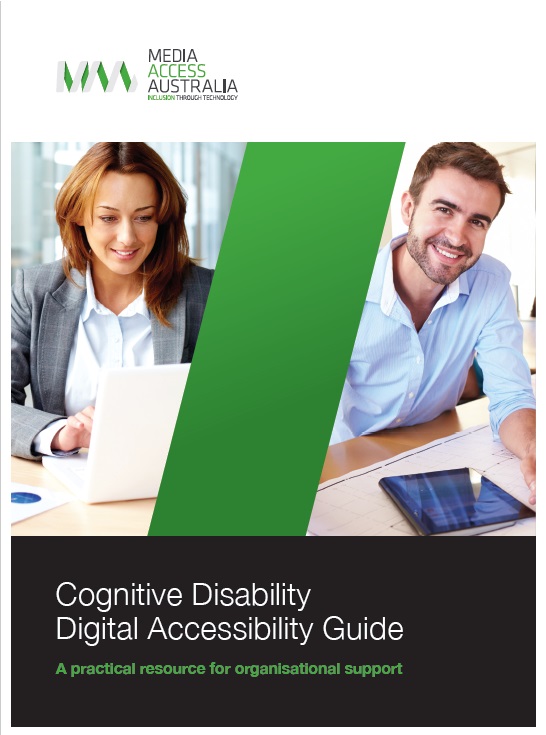
The new Cognitive Disability Digital Accessibility Guide had to pass a final series of language, grammar and comprehension tests before this practical resource for organisational support was ready to be released. The review was performed by Scope’s Naomi Rezzani, who is a speech pathologist and accessible information coordinator of the Melbourne-based not-for -profit group Scope.
Until this guide was produced, there weren’t many specific resources available relating to the digital accessibility needs of people with a cognitive disability. “I agree, there wasn’t a lot of information at all,” observed Ms Rezzani.
“And the difficulty that we find for people with limited literacy is that there is not a good understanding of the need, so sometimes a piece of information is still too complex, even if it was produced with the needs of a person with limited literacy skills in mind. And we address this by ensuring that we consumer test everything we do at Scope to check that it is as user friendly as we think it is. And it’s a really good reminder of how much more simplification we need to do.”
Media Access Australia and Scope have worked together on a number of projects and the relationship is “absolutely complementary,” said Ms Rezzani.
“We have many speech pathologists on our team… so we have a huge amount of experience around how symbols and images can be used to best effect. And also our knowledge of supporting people with cognitive disability means that our significant experience in presenting information with that simplified format, language, grammar and those images, is a really nice fit with the broader accessibility experience that Media Access Australia has.”
“We’re certainly learning more about how we present our information in a more accessible way online,” she added. “And I feel like that’s a huge area that all of us need quite a bit of support with.”
Listen to an interview where Media Access Australia’s Philip Jenkinson talks to Naomi Rezzani of Scope about what she sees as the key issues, common fails and contributing factors that influence good communication to those with a cognitive disability.
Read the transcript of Philip Jenkinson’s interview with Naomi Rezzani on 6 June 2016
For more information on cognitive disability from an organisational needs perspective, head to the webpage where you can freely download the Cognitive Disability Digital Accessibility Guide as an accessible PDF or accessible Word document.
Top of page

